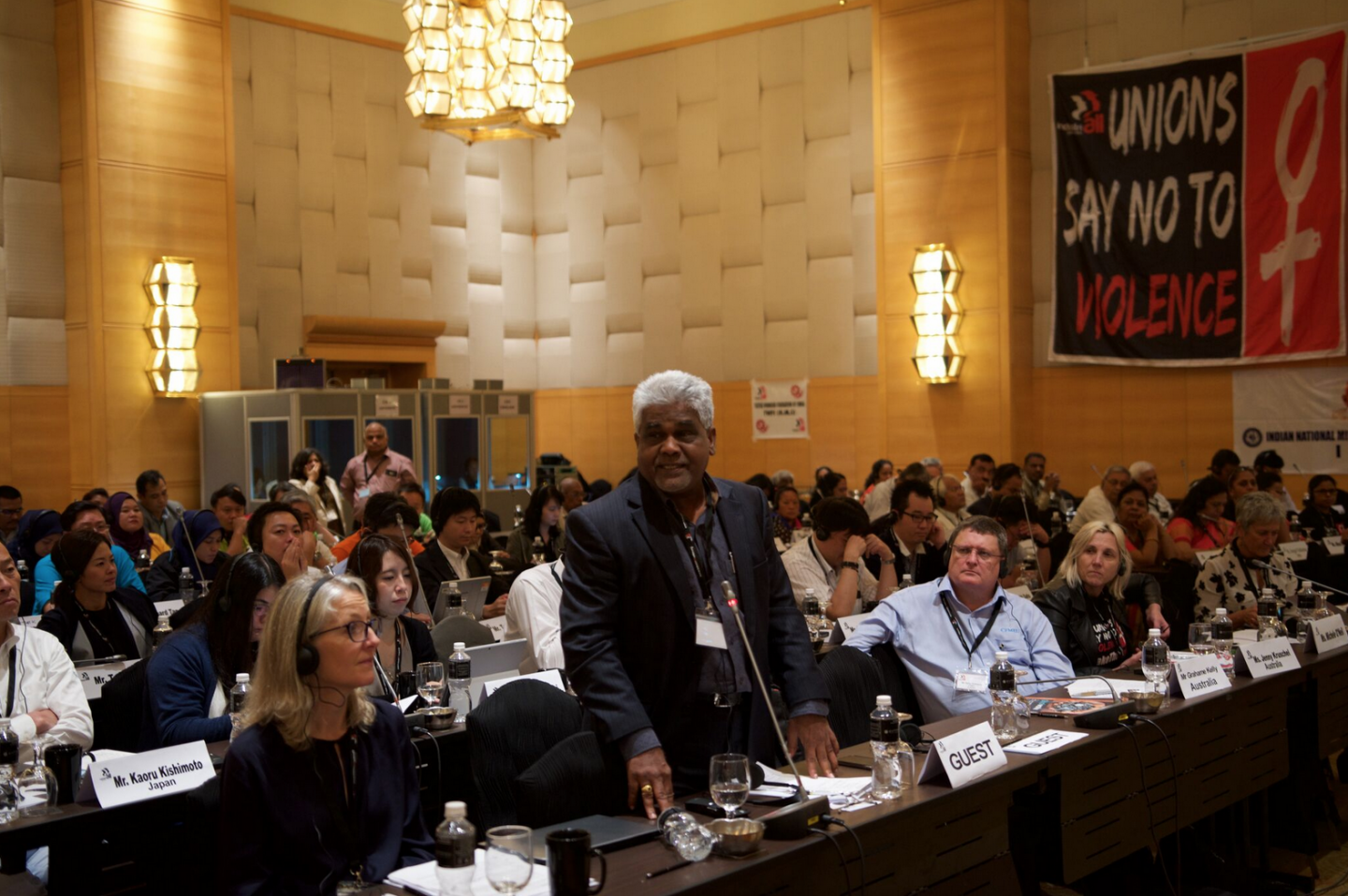4 December, 2018Gopal Kishnam is general secretary of the National Union of Transport Equipment and Allied workers in Malaysia (NUTEAIW). He says that organizing and changing the country’s labour laws are among the priorities for the union.
Union: National Union of Transport Equipment and Allied workers in Malaysia (NUTEAIW)
Country: Malaysia
Text: Petra Brännmark
Membership is growing and NUTEAIW, which organizes workers in the automotive sectors, is present in more than 40 workplaces.
“Workers want a union and it is our obligation to be there,” says Gopal. “Where we can organize, more than 95 per cent of the eligible workers are members.”
Gopal says that organizing workers is not difficult from an ideological standpoint, but that the recognition process is complicated. First, the union needs to certify that the workplace falls under their scope. Then, there is a lengthy legal process, which includes a secret ballot.
Under current provisions, the Industrial Relations Act, a union must obtain a simple majority in a secret ballot process conducted by the Human Resource Ministry to represent workers at any workplace.
However, the real challenge in obtaining majority is the formula used by the ministry to ascertain majority. If a worker is not present in the workplace to cast his or her vote at the time of the secret ballot, it is counted as a vote against the union.
“A simple majority should suffice,” says Gopal.
In May this year, Malaysia saw a change to a more union-friendly government. The human resource minister, M Kulasegaran, has announced his intention to review all labour related laws, including the recognition process.
“Where there is a union, there is a CBA”
The NUTEAIW have collective agreements in all their workplaces, normally negotiated for a period of not less than three years.
“In the last two years we have managed to extend the CBA at some companies to include the employee’s family as well.
“We have managed to include family medical assistance to immediate family members like spouses and children. Around 80 per cent of the CBAs gave this provision.
“The Employment Act provides sixty days maternity leave. At car manufacturer Volvo we managed to secure ninety days and are now using this breakthrough to push others to extend the same benefit,” says Gopal.
Aiming for 40 per cent women
NUTEAIW currently has less than 20 per cent women in their leadership structures but are working to achieve IndustriALL’s quota of 40 per cent women representation.
Currently, only three of the 17 members of NUTEAIW’s executive council are women, but 40 per cent of the shop stewards are women.
Gopal says that the union is pushing for a change – in a factory where women are in majority among the workers, the union leaders should be women.
IndustriALL Global Union is in the process of moving its regional office from Singapore to Malaysia’s capital Kuala Lumpur, something Gopal says will have an impact on trade union’s status in the country.
“We are in the process of registering the IndustriALL Malaysian Council as an official body, which will give recognition to the council,” says Kishnam. “We are expecting more unions to affiliate after this, increasing the current number of seven.”
Being part of a global union is important for the NUTEAIW, who have been able to call for solidarity support from unions in other parts of the world on issues at multinational companies.
“We had difficulties at Robot Bosch, but after the works council from Germany intervened and contacted management we were able to get the union recognition we were seeking.
“I strongly believe that a close link with international unions is important to learn from each other, and for assistance and solidarity. We know how to fight, and harnessing the collective power of workers in solidarity really shows how strong we are when we stand up together.”
